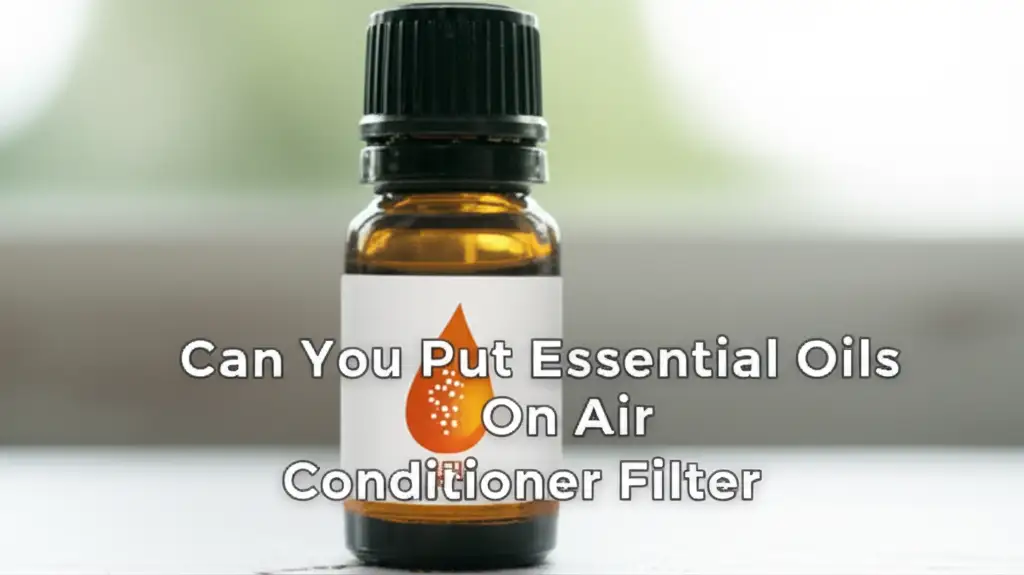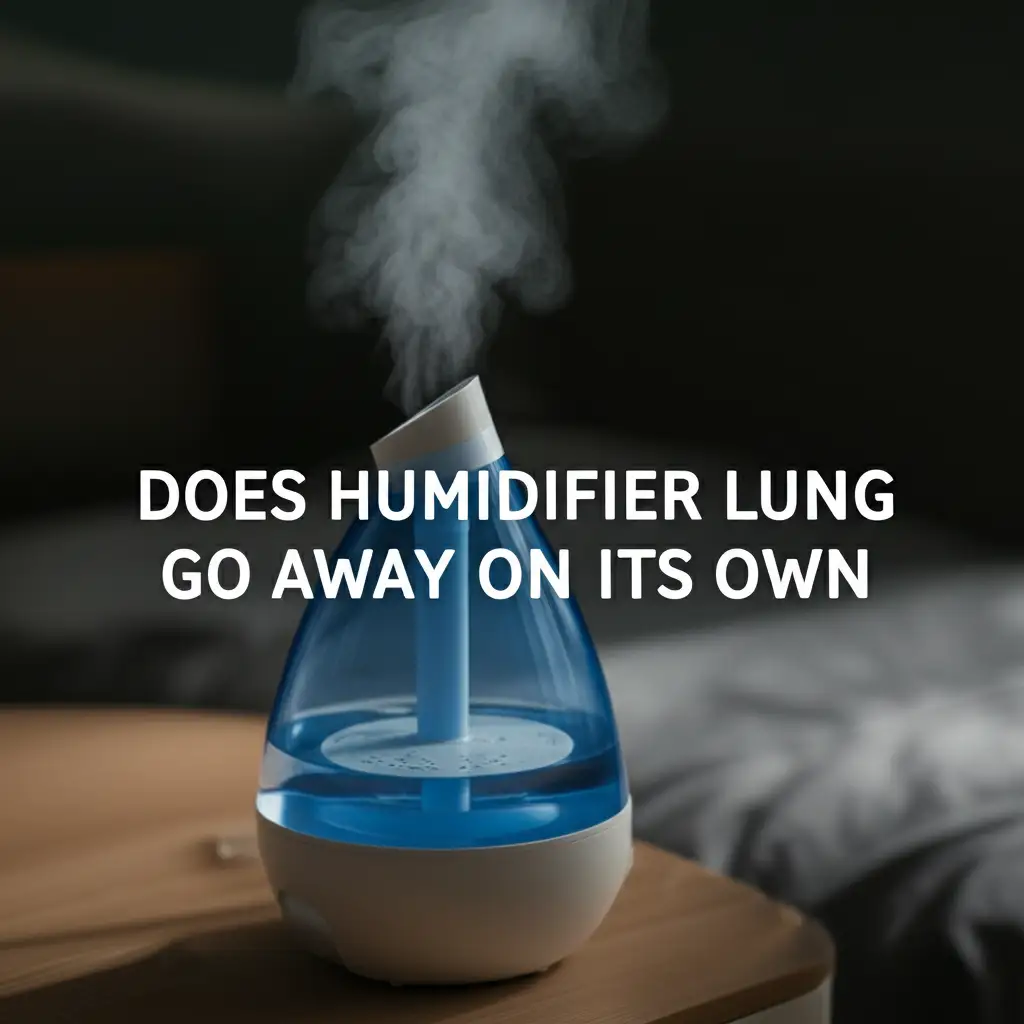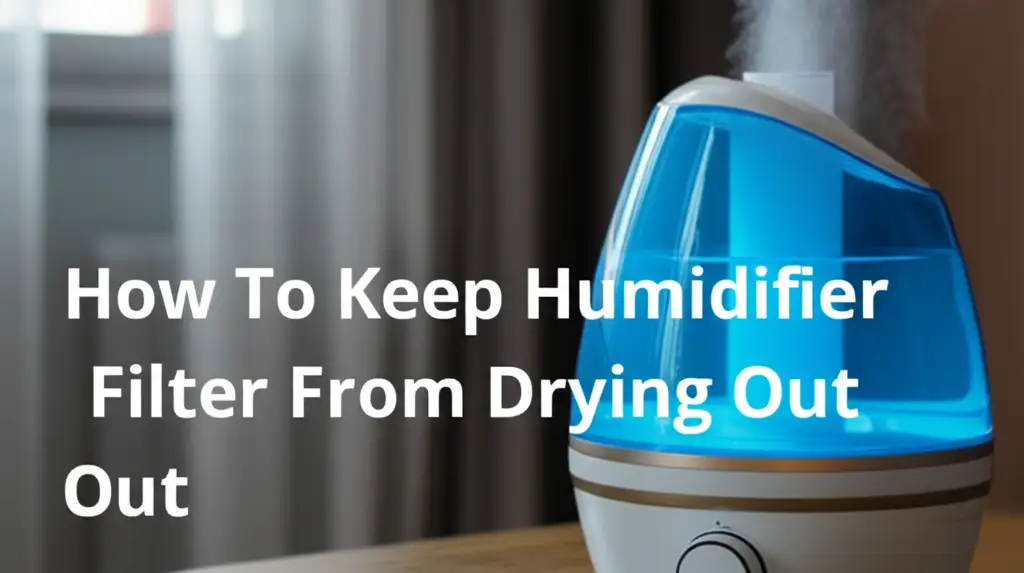· Todd Martin · Home Air Quality · 18 min read
Can You Put Essential Oils On Air Conditioner Filter

Can Essential Oils Enhance Your AC Filter Experience?
Imagine walking into your home, and a beautiful scent greets you. Many people dream of a constantly fresh-smelling living space. This desire often leads to questions about various methods for diffusing fragrances. One common question I hear is, “Can you put essential oils on air conditioner filter?” It seems like a clever idea at first glance.
This article will explore the practicality and safety of using essential oils with your AC filter. We will discuss the potential benefits and, more importantly, the significant risks involved. You will learn about how your AC filter works and what happens when essential oils interact with it. Finally, I will share safer, more effective ways to make your home smell wonderful without harming your HVAC system or your health.
Takeaway
- Do not apply essential oils directly to air conditioner filters.
- Essential oils can damage filter material and reduce air flow.
- They may also cause harm to your AC unit’s internal components.
- Airborne oil particles can affect indoor air quality and trigger respiratory issues.
- Always use purpose-built diffusers or other safe methods for home fragrance.
No, directly applying essential oils to an air conditioner filter is not recommended. It can damage the filter material, reduce airflow, potentially harm your HVAC system, and negatively impact indoor air quality by releasing concentrated oil particles into your home. Safer methods exist for diffusing scents.
The Allure of Scenting Your Home with Essential Oils
We all love a home that smells inviting. A pleasant fragrance can change your mood. Essential oils offer a natural way to achieve this. Many people use them in diffusers or sprays. They come in many scents, from calming lavender to invigorating citrus.
The idea of using an air conditioner filter for diffusion seems convenient. Your AC system moves air throughout the entire house. It might seem like a simple solution to spread a favorite scent everywhere. This thought makes sense on the surface.
The Appeal of a Naturally Fragrant Home
Essential oils come from plants. They offer natural fragrances. This appeals to people who want to avoid artificial scents. A home smelling of eucalyptus or peppermint can feel refreshing. We often connect certain scents with cleanliness or comfort.
People want their homes to feel clean and welcoming. Using natural scents fits a healthy lifestyle goal. Essential oils fit this desire well. This is why the idea of using essential oils with an AC system gains traction.
Common Misconceptions About AC Filters and Oils
Many people think AC filters simply catch dust. They believe adding oils will just scent the air. However, filters are complex components. They have specific structures and materials. These materials are not made to absorb oils.
Another misconception is that the oil will evaporate cleanly. People think the scent will just pass into the air. In reality, oils can stick to surfaces. They can also break down over time. This process can create problems inside your air conditioning system.
Why Putting Essential Oils on AC Filters Is Not Recommended
Putting essential oils on an air conditioner filter sounds like an easy hack. However, this practice carries significant risks. It can harm your HVAC system. It can also negatively affect your indoor air quality. I strongly advise against it for several reasons.
Essential oils are not just water-based scents. They are concentrated, often oily substances. When you apply them to a filter, they do not just evaporate into a pleasant aroma. They can alter the filter’s function and potentially damage your entire system. Understanding these risks is important for home safety and appliance longevity.
Filter Damage and Reduced Efficiency
Air conditioner filters use specific materials to trap particles. These materials include paper, fiberglass, or synthetic fibers. Essential oils are liquids, and many are oily. When oils saturate the filter material, they can damage it. The fibers might break down or stick together.
This saturation changes the filter’s structure. A damaged filter cannot effectively trap dust and allergens. This means more contaminants pass into your home’s air. The oils also make the filter less permeable to air. This reduces airflow through your AC system. A clogged or inefficient filter makes your unit work harder. You may notice your AC runs longer to reach the desired temperature.
HVAC System Issues and Component Harm
The problems do not stop at the filter. Reduced airflow puts strain on your entire HVAC system. The fan motor works harder to pull air through the restricted filter. This increased strain can cause the motor to overheat. It may also lead to premature wear and tear.
Essential oils can also evaporate and condense on other parts of the system. This includes coils, ducts, and even electrical components. Some essential oils are corrosive over time. They could damage metal parts or rubber seals. Cleaning your air conditioner filter regularly is crucial, but oils make this more difficult and introduce new problems. If you need general guidance on how to clean your air conditioner, consider reviewing dedicated resources.
Air Quality Concerns and Health Risks
When you put essential oils on a filter, the AC unit blows tiny oil droplets into your home. These are not fine, dispersed particles like from a proper diffuser. Instead, they are larger, more concentrated oil particles. Breathing these particles can irritate lungs. People with asthma or allergies may experience worse symptoms.
Furthermore, essential oils are organic compounds. They can attract and feed mold and mildew. A damp, dark AC filter covered in organic oil becomes a breeding ground. This can lead to mold growth inside your HVAC system. Mold spores then spread throughout your home, causing health issues. Clean filters are key for healthy air, and oils undermine this. For more information on maintaining your filter, learn about how to clean an air conditioner filter.
Safety Hazards
While rare, essential oils can pose fire risks. They are flammable liquids. Concentrated oils on a filter, especially if near electrical components, could be a hazard. The risk is low but not zero. It is not worth the potential danger.
Also, if oils leak from the filter, they can make surfaces slippery. This creates a fall hazard. It also leaves an oily residue that is hard to clean. These safety aspects add to the reasons against this practice.
Understanding Your AC Filter’s Role and Composition
Your air conditioner filter plays a vital role in your home. It does more than just keep your AC unit clean. It also protects your indoor air quality. To understand why essential oils are a bad idea, we must know how filters work. I want to explain what these filters are made of and their specific job.
The filter is your home’s first line of defense. It prevents dust, dirt, and other airborne particles from entering your HVAC system. This helps your system run efficiently. It also ensures the air you breathe is cleaner.
Function: Trapping Dust, Pollen, and Pet Dander
The main job of an AC filter is to capture airborne contaminants. It acts like a sieve. Air passes through, but tiny particles get caught. These particles include common household dust, pollen, pet dander, and mold spores. By trapping these, the filter protects the AC’s coils and fan.
A clean filter allows your AC unit to run smoothly. It also helps prevent health problems related to poor air quality. Without a filter, these particles would build up inside your AC. This would reduce its efficiency and potentially cause breakdowns. Choosing what is the best air conditioner filter to use can significantly improve your home’s air quality.
Materials: Pleated Paper, Fiberglass, and Electrostatic Fibers
AC filters come in different types and materials. The most common are fiberglass, pleated paper, or synthetic fibers. Fiberglass filters are usually basic and capture larger particles. Pleated filters, often made from cotton or polyester, offer more surface area. They capture smaller particles more effectively. Some filters are electrostatic. These use static electricity to attract and hold dust.
Each material has unique properties. They are designed for airflow and particle capture, not oil absorption. These materials are not meant to handle concentrated liquids. They are designed to remain dry and porous.
How Oils Interact with These Materials
When you apply essential oils, they saturate the filter fibers. Oils are thick and sticky compared to air. They fill the small spaces within the filter material. This reduces the filter’s ability to trap particles. The oils can also cause the fibers to clump together. This makes the filter less effective at its job.
The oils do not just sit there; they can break down the material. Over time, some oils can dissolve certain plastics or glues. This weakens the filter’s structure. A compromised filter cannot protect your AC unit properly. It also allows more unfiltered air to circulate.
Impact on MERV Rating
Every AC filter has a MERV rating. MERV stands for Minimum Efficiency Reporting Value. This rating tells you how well a filter removes particles from the air. A higher MERV rating means better filtration. For example, a MERV 8 filter captures more small particles than a MERV 4 filter.
Applying essential oils can severely lower your filter’s effective MERV rating. Even if your filter originally had a high MERV, saturating it with oil changes its properties. It creates a sticky, less porous barrier. This means fewer tiny particles get trapped. Your expensive, high-MERV filter effectively becomes much less efficient. This defeats the purpose of buying a good filter for clean air.
Potential Health Implications of Airborne Essential Oils
When essential oils are dispersed through an AC system, they enter the air you breathe. This can seem harmless, especially if you love the scent. However, airborne essential oil particles can have real health impacts. I want to emphasize that these oils are concentrated plant extracts. They are not simply pleasant smells. Their strength can be a double-edged sword when inhaled constantly.
Your lungs are delicate. They are designed to process clean air. Introducing high concentrations of any airborne substance can cause problems. Essential oils, while natural, are no exception. Understanding these risks helps you make safer choices for your home and family.
Allergies and Sensitivities (Pets, Children, Adults)
Many people and pets have sensitivities to essential oils. What smells lovely to one person might trigger a reaction in another. Essential oils contain numerous chemical compounds. These compounds can act as allergens. When diffused widely by an AC system, they are unavoidable.
Symptoms can range from mild to severe. They include skin irritation, headaches, dizziness, and nausea. For children, their respiratory systems are still developing. They are more vulnerable to airborne irritants. Pets, especially cats, lack certain enzymes. These enzymes help them process essential oil compounds. Exposure can be toxic to them. A continuous stream of oil particles from an AC filter makes avoiding exposure difficult for vulnerable family members.
Respiratory Issues: Asthma and Irritation
People with pre-existing respiratory conditions face higher risks. Asthma sufferers, for example, can experience worsened symptoms. Essential oil particles can irritate airways. This irritation can lead to coughing, wheezing, and shortness of breath. The fine mist of oils, rather than dissolving, often lingers in the air.
Even for healthy individuals, constant exposure can cause issues. You might develop a persistent cough. Your throat might feel dry or irritated. Some people report a burning sensation in their eyes or nose. The high concentration from an AC filter is different from a purpose-built diffuser. A diffuser is designed to disperse tiny, well-dispersed particles. An AC filter simply blows the oil through in a less controlled way.
Lack of Proper Diffusion
A standard essential oil diffuser uses specific technology. It breaks down the oil into very fine, light particles. These particles stay suspended in the air. They are less likely to fall out of the air quickly. This controlled diffusion helps to disperse the scent evenly and safely.
An AC filter does not offer this control. When you put oils on the filter, the fan simply blasts larger oil droplets. These droplets are heavier and can fall out of the air. They can land on furniture and surfaces. This leaves an oily residue. More importantly, these larger particles are more likely to be inhaled. They deposit deeper into the lungs. This uncontrolled spread increases the risk of irritation and health problems.
Concentration Levels
The concentration of essential oils becomes a major concern. A few drops on a filter might seem small. However, that small amount is then spread throughout your entire home by the AC system. This creates a continuous, low-level exposure. Over hours of AC operation, this builds up. The concentration in the air can become much higher than intended.
Purpose-built diffusers often have settings. You can control the intensity and duration of diffusion. This allows you to manage exposure. With an AC filter, you lose this control. The oil keeps diffusing as long as the AC runs. This sustained, uncontrolled release is problematic. It increases the likelihood of adverse reactions.
Safer and More Effective Alternatives for Home Scenting
Now that we understand the risks of putting essential oils on AC filters, let’s talk about better options. You can still enjoy wonderful fragrances in your home. There are many safe and effective ways to use essential oils. These methods are designed for diffusion. They will not harm your HVAC system. They also protect your family’s health.
I encourage you to explore these alternatives. They offer the same pleasant scents without the drawbacks. Choosing the right method ensures both fragrance and safety. We can have fresh-smelling homes without taking unnecessary risks.
Diffusers: Ultrasonic and Nebulizing
Purpose-built essential oil diffusers are the best choice. They are specifically designed to disperse oils safely. There are two main types: ultrasonic and nebulizing diffusers.
- Ultrasonic Diffusers: These use water and ultrasonic vibrations. They create a fine mist of water and essential oil. This mist is light and disperses well. They also add a little humidity to the air, which can be nice. Ultrasonic diffusers are quiet and easy to use. Remember to clean your diffuser regularly for best performance. Here is how to clean an essential oil diffuser properly: how to clean essential oil diffuser.
- Nebulizing Diffusers: These diffusers do not use water. They use air pressure to atomize pure essential oil into a micro-fine mist. This creates a stronger scent. They are great for larger rooms. Nebulizing diffusers provide a concentrated aroma. Both types provide controlled diffusion. You can manage how much scent fills your space. This prevents over-exposure.
Room Sprays: DIY with Distilled Water and Oils
You can easily make your own room spray. This method gives you control over the scent strength. Mix distilled water with a few drops of your favorite essential oils. You can also add a small amount of witch hazel or rubbing alcohol. This helps the oils mix better.
Pour the mixture into a spray bottle. Shake it well before each use. Then, simply mist your rooms as needed. This allows you to apply scent directly where you want it. You avoid sending oils through your entire AC system. This is a quick and direct way to freshen up any space. You can also reuse your old essential oil bottles for this purpose if you learn how to clean essential oil bottles.
Cotton Balls or Pads: Placed Near Return Vents
This is a simple, low-tech option. Put a few drops of essential oil onto a cotton ball or pad. Place this scented cotton ball near a return air vent. Do not place it on the filter or inside the ductwork. The air being drawn into the return vent will pick up the scent.
This method allows for gentle diffusion. The scent will circulate with the air movement. It is a controlled way to add fragrance. You can easily remove the cotton ball when the scent fades. This keeps the oil away from your AC unit’s internal parts. It is a safer alternative to direct filter application.
DIY Air Fresheners: Baking Soda and Oils
Baking soda is a natural odor absorber. You can combine it with essential oils for a simple air freshener. Put a half cup of baking soda into a small jar. Add 10-20 drops of your chosen essential oil. Poke holes in the lid of the jar.
Place these jars in various rooms. They will absorb odors and release a light scent. This method is effective for smaller spaces. It is also completely safe for your AC system. You can easily refresh the scent by adding more oil. This provides a constant, subtle fragrance.
Scented Wax Melts and Candles: Use with Caution
Scented wax melts and candles also provide home fragrance. They are widely available. Wax melts use a warming plate to release scent without a flame. Candles release scent through burning. These options can be effective.
However, use them with caution. Ensure proper ventilation when burning candles. Never leave candles unattended. Wax melts are generally safer than candles. Always follow manufacturer instructions for both. They offer another way to scent your home. They keep essential oils away from your valuable HVAC system.
Maintaining Your Air Conditioner for Optimal Performance and Air Quality
Proper air conditioner maintenance is crucial. It keeps your system running well. It also ensures good indoor air quality. Ignoring maintenance can lead to costly repairs. It can also cause health issues. I always emphasize regular care. This is far more important than trying to scent the air through the filter.
A well-maintained AC unit works efficiently. It saves you money on energy bills. It also provides clean, cool air. Let’s look at key maintenance steps. These steps ensure your system performs at its best.
Regular Filter Changes and Cleaning
The most important maintenance task is filter care. You should check your AC filter every month. Change or clean it every 1-3 months. This depends on usage and home conditions. Homes with pets or allergies may need more frequent changes.
A dirty filter restricts airflow. This makes your AC unit work harder. It wastes energy and shortens the unit’s lifespan. Regularly replacing or cleaning the filter improves air quality. It also keeps your energy bills lower. It is a simple task that makes a big difference. If you have specific AC models, you might find guides like how to clean a Midea U-shaped air conditioner filter or how to clean a filter on an LG air conditioner dual inverter useful.
Professional Servicing
Schedule professional AC servicing once a year. A technician will inspect your entire system. They check refrigerant levels and electrical connections. They also clean coils and drain lines. Professionals can spot small problems before they become big ones.
This annual check-up extends the life of your AC unit. It ensures it runs at peak efficiency. Professional servicing is an investment. It prevents unexpected breakdowns. It also gives you peace of mind.
Duct Cleaning
Air ducts distribute conditioned air throughout your home. Over time, dust, allergens, and even mold can build up inside them. Dirty ducts can reduce air quality. They also make your AC unit work harder.
Consider professional duct cleaning every few years. This removes accumulated debris. It improves airflow and air quality. Clean ducts help your AC system deliver fresh air efficiently. You can find more information about how to clean air conditioner ducts to help maintain your system’s cleanliness.
Ensuring Proper Humidity Levels
High humidity can cause discomfort. It also encourages mold growth. Your AC unit helps remove humidity. Ensure your system is properly sized for your home. An oversized unit may not run long enough to effectively dehumidify.
Monitor humidity levels with a hygrometer. Ideal indoor humidity is between 30% and 50%. If humidity remains high, consider a dehumidifier. Maintaining proper humidity prevents mold issues. It also makes your home feel more comfortable. This is key for good air quality.
Coil Cleaning and Maintenance
The evaporator coils inside your AC unit get cold. They collect condensation. Dust and dirt can stick to these wet coils. This forms a layer of grime. Dirty coils cannot transfer heat efficiently. This reduces your AC’s cooling power.
Clean your coils regularly. You can often clean the outdoor condenser coils yourself with a hose. Indoor evaporator coils may require professional cleaning. Keeping coils clean maintains efficiency. It helps your AC cool your home effectively. Proper coil care extends your unit’s life. For details on how to clean specific parts, read how to clean air conditioner coils.
Dispelling Myths: What Works and What Doesn’t for AC Scenting
Many ideas circulate about home scenting. Not all of them are safe or effective. It’s important to separate fact from fiction. My goal is to ensure you use your AC system safely. I also want you to achieve the pleasant home fragrance you desire. Let’s clear up some common misunderstandings.
We often look for quick fixes. When it comes to something as vital as your home’s air conditioning, shortcuts can lead to big problems. Understanding why certain methods fail protects your investment. It also protects your family’s health.
Reiterate Why Filter Application Fails
As we discussed, putting essential oils directly on your AC filter is a bad idea. The filter is designed for air filtration. It is not designed for liquid absorption and controlled diffusion. Oils damage the filter material. They reduce its ability to capture particles. This makes your filter less effective.
The oils also introduce moisture and organic material. This encourages mold growth on the filter and within your HVAC system. The fan then blows these mold spores and large oil particles into your home. This defeats the purpose of an air filter. It creates health risks instead of fresh air. The “easy” solution turns into a costly problem.
Address Common DIY Hacks Gone Wrong
People try various DIY hacks to scent their homes. Some suggest taping dryer sheets to vents. Others recommend spraying perfume into return ducts. These methods also have drawbacks. Dryer sheets block airflow. They can also leave chemical residues. Perfumes contain alcohol and other chemicals. These can damage plastics or metals inside your ducts. They also introduce chemicals into the air.
- essential oils
- AC filter
- home fragrance
- indoor air quality
- HVAC
- air conditioner maintenance





